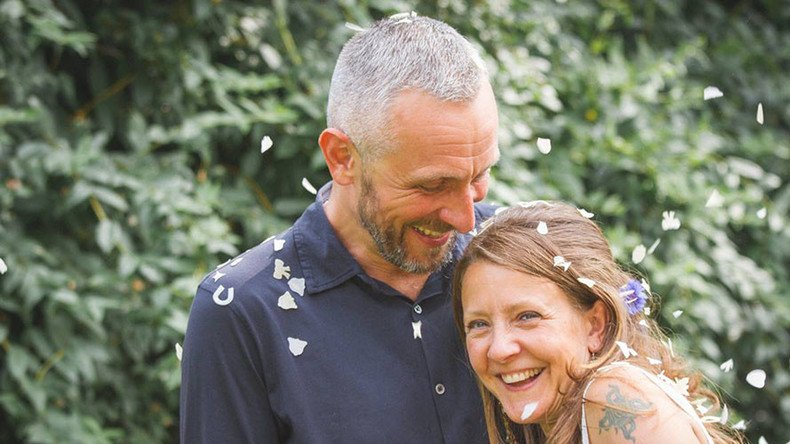Grieving man slept beside dead wife for 6 nights

A grieving man has revealed how he slept beside the body of his dead wife for six days after she died, and is encouraging other families who lose loved ones to follow his example.
Wendy Davison, 50, died at home in Derbyshire last month after losing a 10-year battle with cervical cancer. Her widower, Russell, 51, says he could not bear to see her taken away immediately, so he slept by her side for almost a week and invited relatives to visit and talk to her.
He described the experience as an “emotional decompression chamber” that gave his family, including his wife’s two sons and his own two sons, more time to grieve.
“I did not want her in the mortuary or handed over to a funeral director, I wanted us to take care of her ourselves at our family home, and have her in our bedroom so I could sleep in the same room,” Davison told The Times.
“Having Wendy’s body at home and being able to sit with her all day, have her friends and family come to sit with her, chat with her, chat about her, and light candles and incense on her altar proved to be such a beautiful and comforting experience for me, the boys, and all who took part,” he said.
It is legal to keep a body at home, under some conditions, Cancer Research UK says. A GP must have been informed of the death, and the death registered within five days. A funeral director or nurse is also required to wash the body and, if the body is being kept at home for more than a few days, a funeral director may be required to embalm it.
The Davisons decided against chemotherapy or radiotherapy, instead opting for a “natural” approach to her healthcare. The couple went traveling around Europe in a caravan in 2014, when she was given six months to live. They returned last September when she was too ill to continue.
While Davisons’ wife made several visits to the cancer ward at the Royal Derby Hospital, she was nursed at home by her husband and their sons. She died peacefully at home under sedation, in accordance with her wishes, Davison says.
The family placed her in a “cocoon,” a word Davidson says he prefers to the word “coffin.”
He said there was no legal obligation to put the body in a mortuary and that the family “didn’t have to do anything specific to preserve Wendy’s body.”
He wrote on Facebook that, after five days, her body had not deteriorated significantly, but “she has started to change in appearance as her body starts to relax into its next stage, but she still looks beautiful.”
Davison says, after six days, they took his wife to a crematorium by car and informed the police of their activities.He is now encouraging other people grieving the loss of a family member to do the same.
“Death seems to be such a taboo subject in our society, no-one seems to want to talk about it.
“The idea of her being taken away in a plastic body bag hours after death is so alien to us all now, we really don’t think we could have taken it.
“My humble opinion is that you should take control back, and use Wendy’s example as your guidance,” he said.
A celebration of Wendy Davison’s life is being held at Derbyshire County Cricket Club on Sunday.












